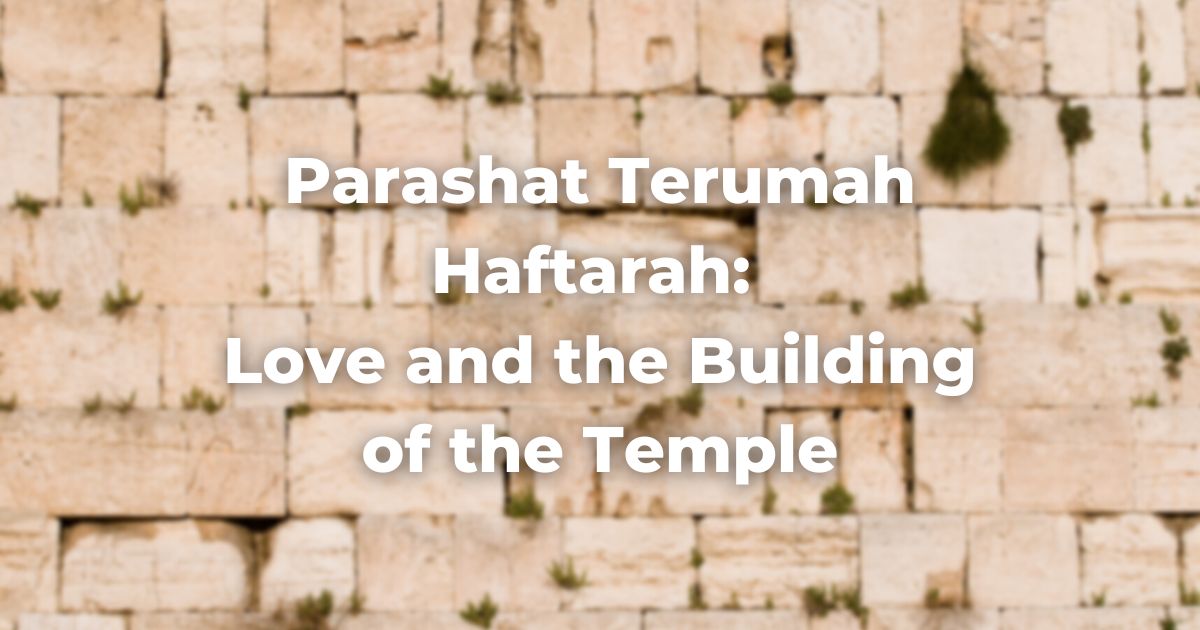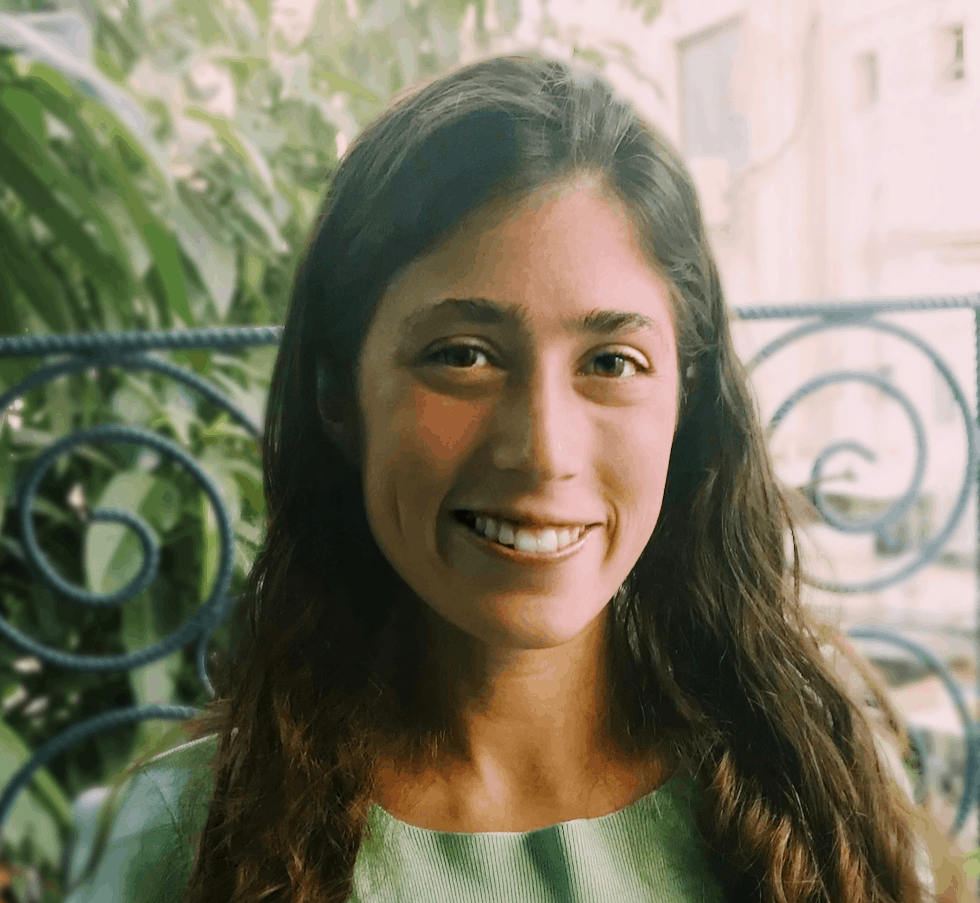Building Solomon’s Temple was perhaps the greatest feat ever of Jewish architecture.
Building the First Temple
It took massive amounts of labor and material. It required international cooperation, national unity, and an ability to follow through on plans. It required the right person from the right lineage at the right time. And each of these requirements was fulfilled only due to relationships that started in love.
We read in this week’s haftarah about Hiram of Tyre and his contribution to the Temple.
Not only did we buy wood from Lebanon, we also got Hiram’s masons to chisel the stones of the Temple for us. The whole project was completely dependent on the cooperation of this foreign king.
It seems to have made economic and political sense for Hiram to make such a deal with Solomon—he is trading services for food and he is expanding his trade routes toward Africa. But the way the story is told, the motivating factor for Hiram is love. We read, shortly before the haftarah starts, “And Hiram, King of Tyre, sent his servants to Solomon for he heard that he had been anointed as king in place of his father. For Hiram had loved David always (1 Kings 5:15).”
We find this love also in the choice of Solomon to build the Temple.
From the moment of Solomon’s birth, he is beloved. At the moment of his birth and naming, we learn that God loves him. God even gives him a nickname, Yedidya, meaning that Solomon is beloved. And although David is forbidden to build the Temple, his beloved son is given the chance. It is from this love that the Temple rises.
What then are we to make of the near slavery of the Israelites in the construction of the Temple?
Solomon forcibly conscripts the population for about 4 months a year to work on the building. Does this, too, come from a place of love? And if so, whose love are we talking about?
Radak reads it as unequivocally negative. It is confirmation of the corruptness of kings that the prophet Samuel had warned us about.
But there is another way to read it. Here we are, building the structure to house our king of kings, the God who rules over everyone and everything.
To worship God is to reject the idea that Solomon is anything other than a guy running logistics. Solomon, using his wisdom, makes possible the organization such that the people could construct a temple. But the people do choose to do it.
They take upon themselves this yoke, once again declaring God to be their true master, much as they did when leaving Egypt.
And so, despite the cynicism of the text, is the relationship between God and the people of Israel, the love they have for each other, that allows the Temple to rise.
See more: Parashat Terumah
Originally posted as part of the Conservative Yeshiva at the Fuchsberg Jerusalem Center’s Torah Sparks. Support Torah learning from the Fuchsberg Jerusalem Center/Conservative Yeshiva for leaders and seekers around the world here.
Authors
-

Bex Stern Rosenblatt is the Conservative Yeshiva’s Faculty-in-Residence for the Mid-Atlantic Region of the United States, teaching Tanach, using the techniques of close-reading, theater, feminist readings, and traditional commentators. Bex also directs the CY’s recruitment efforts in North America. After finishing her B.A. in History and German at Williams College, Bex received a Fulbright Grant to Austria. She later earned an M.A. in Tanakh from Bar Ilan University and has also studied at the Conservative Yeshiva and Bina Jerusalem. Bex is the founder of Havruta Tel Aviv, an organization that facilitates guided pair-learning of the Tanakh.
-



The Fuchsberg Jerusalem Center (FJC) is a home in the heart of Jerusalem where leaders and seekers can find an authentic place in Jewish tradition to call their own. FJC offers opportunities to study, pray and explore within an egalitarian and inclusive setting, creating multiple pathways for finding personal and communal meaning.




